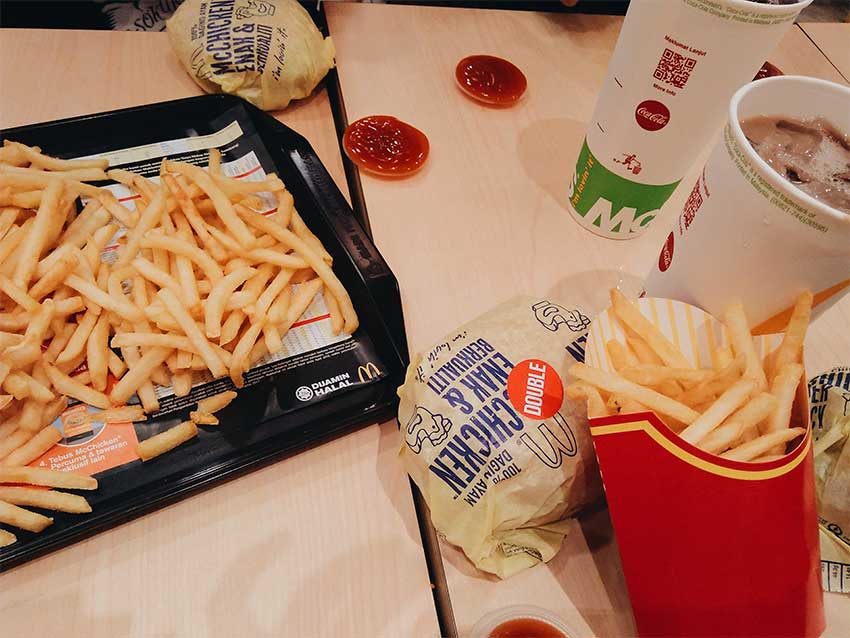
If you’re a parent, think about what your child buys with the pocket money that you hand over every day. Is it water and fresh-squeezed juices? Or is it soda, cheese-flavoured snacks, sweets, and an array of salty fried food? Does your child need to leave the school compound to indulge in what we adults call “guilty pleasures?” No. They’re available right there in canteens and right outside school gates across the Caribbean. Despite global inflation, the cost of these snacks remains comparatively lower than their healthy counterparts. Ease of access, colourful packages, fun names, and constant promotion – even by their age mates – means our children are likely to gravitate to these purchases.
These thoughts ran through my mind after discovering the Healthy Caribbean Coalition’s “Make It Make Sense” campaign. The campaign highlights the damage that unhealthy foods cause, as well as the glaring conflicts of interest and industry interference in the creation of policy centered on healthy foods. It’s the second part that got me thinking.
Just so we’re all on the same page, the Healthy Caribbean Coalition is a not-for-profit organization with the overall aim of reducing the rates of people developing non-communicable diseases, as well as dying from them. I learned that the HCC primarily works to build the capacity of civil society organizations to tackle these issues in their own territories.
As I read through the description of Make It Make Sense on the HCC’s website and poured over the cartoons developed to illustrate the points, I realized “this is really serious.” Make It Make Sense demystified me when it came to the power that unhealthy food brands have on not just myself, but my family, friends, and their kids. For me, fast food and ultra-processed options are just cheap and accessible solutions when I’m tired after work or don’t feel like cooking. As an adult, I’ll admit that catchy jingles and trendy marketing make it difficult to avoid fast-food chains. If I’m so easily attracted to these options, what about our children with minds so malleable and easily influenced?
While I reflected on the message of “Make It Make Sense”, I realized that our children aren’t only being influenced at canteens. Within the classroom, our children are practically branded with logos of fast-food chains and snacks that do nothing to promote the healthy development of their bodies. How now do we expect them to focus on lessons? Does your child have a branded pencil case, backpack or even water bottle? Have they participated in a competition sponsored by a popular fast-food chain? If you answer yes to any of this, tell me: does it make sense?
These aren’t new trends. The infiltration of unhealthy products and fast-food branding and paraphernalia in environments that should be safe has been taking place for well over 40 years. That’s older than many of you reading this. Think back to sports meets that you attended as a student. Think about who sponsored these events? I vividly remember drinking soda and buying slices of pizza at inflated prices. While running races, an activity that stimulates the body, athletes were slapped with logos with no affiliation to a healthy lifestyle.
Interested parties have been documenting these realities for years. In an April 2020 publication, The Heart Foundation of Jamaica stated that “over the years, marketing, and distribution of healthy foods within the Caribbean has grown drastically. As a result, we’ve experienced an increase in the consumptions of pre-packaged foods.”
Even as adults, we take part in fun walks and half marathons. Still, we often neglect to realize that these events are often hosted, or at least sponsored by companies manufacturing unhealthy products. How ironic that while exercising, you’re being served high sugar refreshments. Does that make sense to you? My newfound awareness of “Make It Make Sense” has me questioning whether there is an ulterior motive at play on the part of these brands. Are they putting their foot in a door that we, Joe Public, aren’t even aware exists? Are they using opportunities of goodwill to batten down the hatches for any changes that may be on the horizon?
Do the policymakers and people who have the power to make a difference care about the impact these realities have on our children and wider society? After all, we voted them into offices across the Caribbean to make decisions on our behalf. They have families and children as well.
Policy makers across the region are heavily invested in developing their countries and improving their international standing. How do they expect to run a thriving country with a sickly and unproductive population? Ordinary people like you and I may believe there’s a glaring deficit in policy that aims to protect children from unhealthy lifestyles, but do our policymakers feel the same?
Sugar taxes, front-of-label packaging, and restrictions on what sorts of foods are allowed in schools are a few things that can be introduced. In fact, the “Make It Make Sense” campaign reminded me of fleeting discussions to introduce front-of-label packaging as a means of increasing consumer awareness. I guess for some policymakers, that wasn’t an option worth implementing.
As a parent reading this, are you reflecting on what’s happening in your child’s life? Early introduction to ultra-processed food can lead to hefty hospital bills down the line. The UNC Global Research Program has indicated that regulation is key to reducing obesity in our children. It’s now time for policymakers to step in, make sense of this scary reality, and do what is right to protect our youth.









